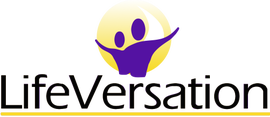 I was keeping a surprise birthday party under wraps when I was approached by the honoree. They began to inquire about what was going on. I tried to divert the conversation to another subject but they ended up asking me, “Are you hiding something?” I responded with, “I have a lot on my mind that I rather not talk about right now.” This was a tough situation, but trying to be honest all the time can put us in some peculiar situations to lie. For most, keeping secrets to benefit or better someone is not considered being dishonest, if in the future that person can understand our sincere reasons why we avoided or could not share on the topic. The boundaries between "honest secrecy" and "dishonest secrecy" are very faint and should be treaded lightly. Paolo Coelho said it this way, "Better to tell the truth and make someone cry than to tell a lie and make someone simile." Let's look at some ways to be honest in our tough spots. 3 Points to Honesty 1. Consideration – To be understanding about another person’s feelings or opinions should not require us to change the truth. When faced with the choice of telling the truth verses a lie, it is good to consider what the future will look like more than what we initially see before us. Someone once said, "When we tell the truth, it becomes a part of our past but when we tell a lie it becomes a part of our future". There's no way to get beyond a lie. You will always have to tweak and change to make it fit. It is okay, not to be liked by everyone because it's actually impossible to be liked by everyone at the same time. But it's not okay to twist the truth to try to gain more people to like you. Your honesty can be misinterpreted as being critical or non-supportive, as well as, hurt feelings and sour friendships. So be considerate (thoughtful, kind and loving) when speaking the truth. Your consideration should reflect a concern of the best for that person, which is the truth shared lovingly, 2. Creative – Coming up with a "white lie" can be very tempting when dealing with sensitive people; however, we should not give in! We can develop the habit of wisely expressing the truth just as quickly as we can express a lie. This is something I've had to work on when shopping with my wife. When she is trying on clothes I've had to learn how to respond creatively but truthfully. For example: I shouldn’t say, "You don’t look good in that, honey". It is better for me to say something like, "Honey, I like the way this one looks on you or let’s try a different color than the one you have on.” You can find creative ways to live out the truth in your environment. Telling the truth is a cultivated behavior that is chosen over the habit of telling a lie. "Honesty is more than not lying. It is truth telling, truth speaking, truth living, and truth loving." - Hurst 3. Consistent – Let's face it, staying balanced on truth all the time can feel like an additional burden in our lives. But living each day with the alternative (a lie) is a life full of worry, doubt and fear. Mark Twain said it like this, "If you tell the truth, you don't have to remember anything." When being honest is how we roll we can expect others to know our character. Being honest doesn't demand that you expose everything to everybody. Your consistence in being real with yourself and others means that you work to handle every situation truthfully. Your consistency will develop strong character, credibility, and trust in the long run. Being honest isn't a goal that you check off your list—it's an ongoing process that will both challenge and benefit you throughout your life. Summary - Be consistent, creative and considerate in being honest. The more time you spend with the truth the less you will believe a lie.
0 Comments
Leave a Reply. |
Archives
December 2020
|
"Delivering Peak Performance Behavior Training"
(601) 879-GOAL (4625)
[email protected]
Copyright © 2012-2024
(601) 879-GOAL (4625)
[email protected]
Copyright © 2012-2024

